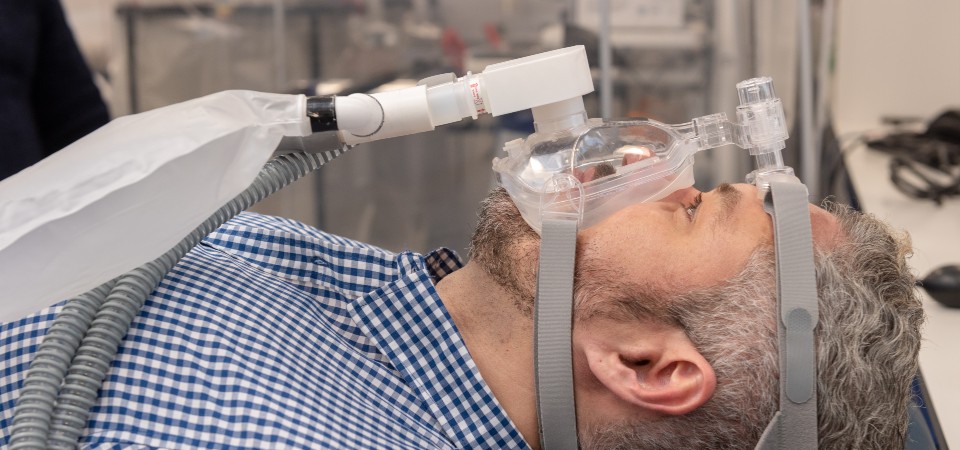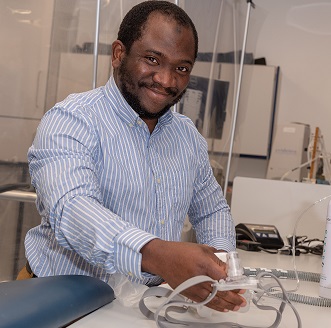The PhD researcher was one of 12 innovators who pitched their ideas to a live online audience who voted for the design which showed the most promise and potential for impact.
He received a £5,000 prize from the Royal Academy of Engineering which organises the competition.
The non-electric ShiVent system was created to allow non-specialised workers to treat patients with coronavirus.
The team - Yusuf Bilesanmi, Ricardo Nascimento, Dr Yusuf Shittu, Gaurav Nanajkar and Pawel Nycz - designed the ventilator with four key features:
- Simple to use – by the average health workers and takes only 30 minutes of training
- Low-Cost – can be produced at a very small fraction of the price of the average ventilator
- Non-Electric – making it suitable for hospital settings with unreliable power
- Oxygen-Efficient – requiring almost as little as a third of the average oxygen consumption of High Flow Oxygen systems
ShiVent has been tested at Loughborough’s National Centre for Sports and Exercise Medicine (NCSEM) and the Leicester Royal Infirmary Hospital.
It has also had a preliminary clinical functionality test at Glenfield Hospital.
Speaking about the award, Yusuf (pictured left) said: “I was dumbfounded and super elated. I couldn’t believe we had won.
“It makes all the difference in the work we have done, the support we have received from the Loughborough community.”
The system works by connecting hospital patients to an existing oxygen source and blends air with the high-flow oxygen supply.
The patient inhales oxygen to fill up the lungs and then exhales into a water column creating back end pressure that keeps their airway open.
It is based on the principles of bubble continuous positive airway pressure (CPAP) - a non-invasive ventilator used for new-born babies developed by Dr Yusuf Shittu, of the Nuffield Hospital in Leicester – a co-founder of the ShiVent system.
The other co-founders are Gaurav Nanajkar, Pawel Nycz and Ricardo Nascimento – all from Loughborough University.
ENDS

